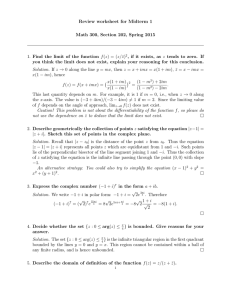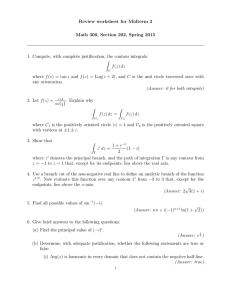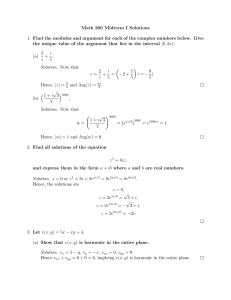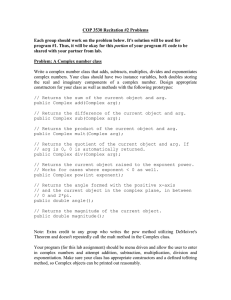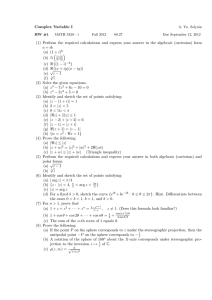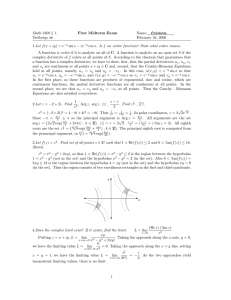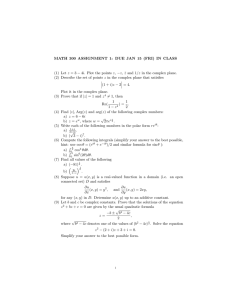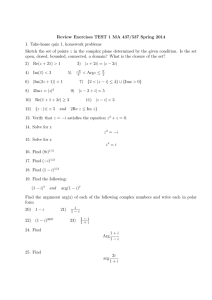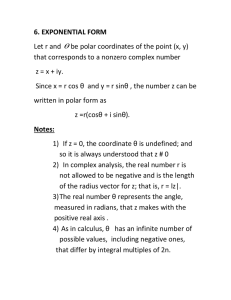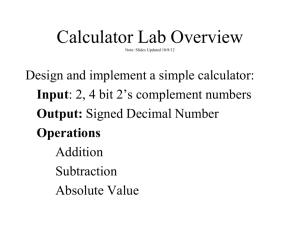Review worksheet for Midterm 1 Math 300, Section 202, Spring 2015
advertisement
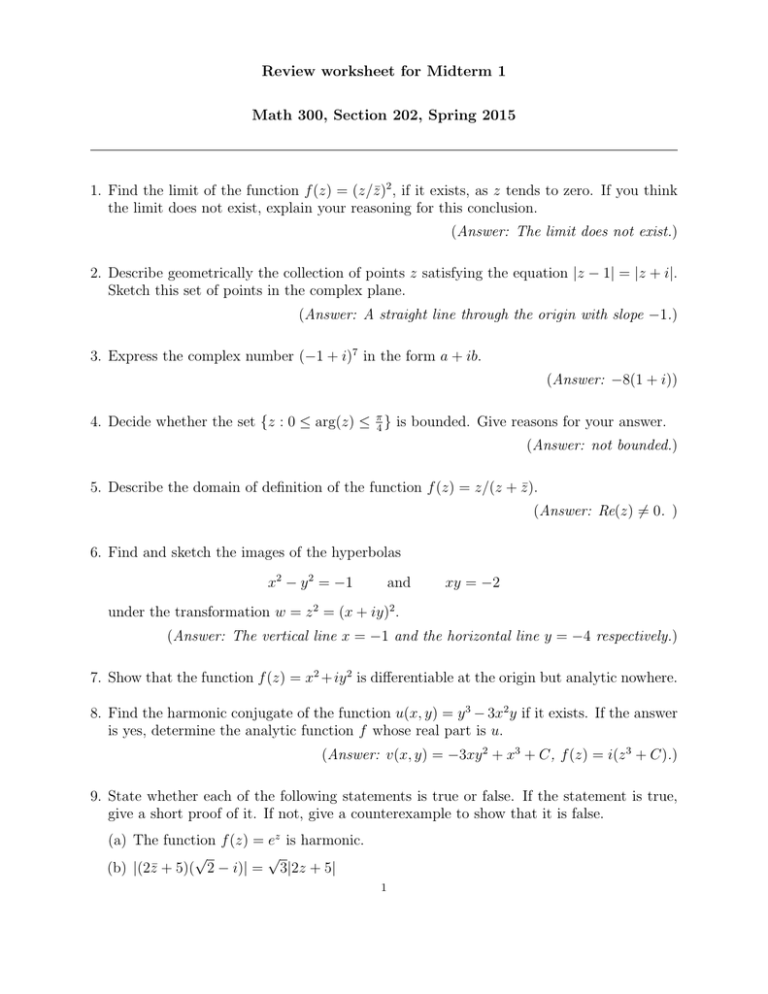
Review worksheet for Midterm 1
Math 300, Section 202, Spring 2015
1. Find the limit of the function f (z) = (z/z̄)2 , if it exists, as z tends to zero. If you think
the limit does not exist, explain your reasoning for this conclusion.
(Answer: The limit does not exist.)
2. Describe geometrically the collection of points z satisfying the equation |z − 1| = |z + i|.
Sketch this set of points in the complex plane.
(Answer: A straight line through the origin with slope −1.)
3. Express the complex number (−1 + i)7 in the form a + ib.
(Answer: −8(1 + i))
4. Decide whether the set {z : 0 ≤ arg(z) ≤ π4 } is bounded. Give reasons for your answer.
(Answer: not bounded.)
5. Describe the domain of definition of the function f (z) = z/(z + z̄).
(Answer: Re(z) 6= 0. )
6. Find and sketch the images of the hyperbolas
x2 − y 2 = −1
and
xy = −2
under the transformation w = z 2 = (x + iy)2 .
(Answer: The vertical line x = −1 and the horizontal line y = −4 respectively.)
7. Show that the function f (z) = x2 +iy 2 is differentiable at the origin but analytic nowhere.
8. Find the harmonic conjugate of the function u(x, y) = y 3 − 3x2 y if it exists. If the answer
is yes, determine the analytic function f whose real part is u.
(Answer: v(x, y) = −3xy 2 + x3 + C, f (z) = i(z 3 + C).)
9. State whether each of the following statements is true or false. If the statement is true,
give a short proof of it. If not, give a counterexample to show that it is false.
(a) The function f (z) = ez is harmonic.
√
√
(b) |(2z̄ + 5)( 2 − i)| = 3|2z + 5|
1
2
(c) There exists a complex number z0 whose fourth roots z1 , z2 , z3 , z4 have the property
that
π
π
2π
arg(z1 ) = , arg(z2 ) = , arg(z3 ) =
, arg(z4 ) = π.
4
2
3
(d) The equation (z 2 + z + 1)ez = 0 has exactly two complex roots.
(e) If a rational function R has a pole at the point a, then then residue of R at a must
be a nonzero complex number.
(Answer: (a) True (b) True (c) False (d) True (e) False )
